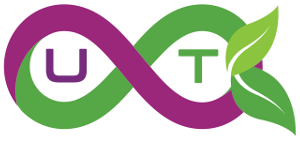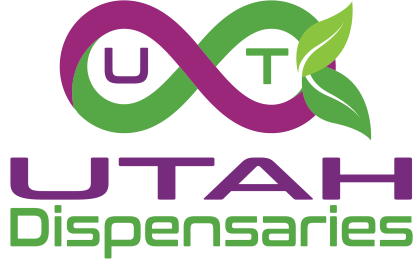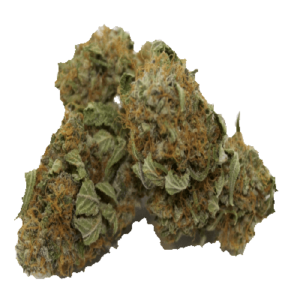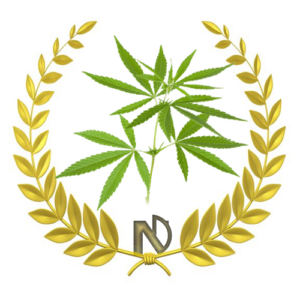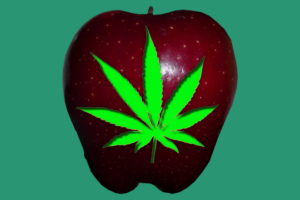UT Marijuana Dispensary Guide
About the Utah Regulated Cannabis Program
Type of program: Medical
Utah Medical Marijuana Program Overview – Historically, Utah is believed to be the first state in the U.S. to officially ban the use of cannabis back in 1915. Some historians believe the law was enacted by Mormon returnees from Mexico following the 1910 revolution. That belief is based on an August 1915 prohibition on cannabis by The Church of Jesus Christ of Latter-day Saints (LDS Church). The prohibition stayed firmly in place until 2014.
In March of 2014, Governor Gary Herbert signed House Bill 105, effectively legalizing the possession and use of hemp-derived, low THC CBD oil. CBD oil was only available upon the recommendation from a physician, and only for the treatment of intractable epilepsy. Sadly, the bill had no clear provisions for where the oil could be legally acquired.
In 2016, another attempt to legalize medical marijuana with the creation of Senate Bill 73, which would allow the use of cannabis for a range of medical ailments. The bill failed to pass.
Later in 2016, Senate Bill 89 was proposed by Senator Evan Vickers (Rep). Senator Vickers proposal would expand the list of qualifying conditions for patients, with the use of low-THC CBD oil, in addition to allowing cultivation, distribution, tracking, testing, research and enforcement models. The bill was passed in the Senate 18-8 and the House Health and Human Services Committee by a vote of 7-5. Ultimately though, the full House did not consider the proposal.
Senate Concurrent Resolution 11, however, was successfully passed by Senator Brian Shiozawa. The study of cannabis for medicinal purposes was allowed, and Congress was urged to reclassify marijuana as a Schedule II drug.
The Utah House of Representatives, passed HB 195 in February 2018, allowing the cultivation of medical marijuana for terminally ill patients. On March 7, the bill was passed “easily” by the state senate, and on March 21, the governor signed it into law.
HB3001 was passed on December 3, 2018 by the Utah Legislature. Later that day, the governor signed HB3001 and the bill was set in motion.
The Utah Medical Cannabis Act was eventually passed on November 6, 2019 as Prop 2, with provisions in place for medical marijuana dispensaries to be operational by January 2021.
Utah medical marijuana dispensaries
600 different cannabis companies submitted 130 applications to run medical marijuana dispensaries. As of September 2019, Utah Department of Health regulators awarded 14 “pharmacy” licenses for Utah medical marijuana dispensaries. Seven of the companies are owned entirely or in part by Utah residents.
The first Utah medical marijuana dispensary, Dragonfly in Salt Lake City opened on March 2, 2020, in Salt Lake City.
UT Marijuana Deliveries RX
State lawmakers in 2019 adopted a legal framework for a home delivery of medical marijuana from open cannabis stores in Utah.
One Utah company was the first to offer home delivery for medical marijuana. Other companies have since followed suit.
Medical marijuana products available at UT Dispensaries
Available Dispensary Menu products
The following products are available at Utah medical marijuana dispensaries:
Tablets
Capsules
Concentrated oils
Topical preparations
Transdermal preparations
Sublingual preparations (under the tongue)
Liquid suspension (gelatinous cube or lozenge)
Smokable marijuana products including dried marijuana flower, hashish, wax, etc. are prohibited.
Utah marijuana Laws
Patient purchase and possession limits
All qualifying medical marijuana patients in the state of Utah are allowed to purchase up to a 30 day supply of medicine. A 30-day supply shall not exceed a weight of 113 grams. Single doses must be limited to a maximum of 20 milligrams of THC.
Home cultivation
Home cultivation of medical marijuana is illegal in Utah. Legislation approved by the House and Senate on December 3, 2018 rewrote the Utah Medical Cannabis Act to eliminate the home cultivation option. Proponents of the voter-initiated measure are suing over the changes.
Workplace laws
In the state of Utah a medical cannabis card does not exempt patients from their employer’s job safety requirements. Many employers will likely prohibit employees from driving or operating heavy machinery while under the influence of medical cannabis.
Reciprocity
The state of Utah has no reciprocity for out of state medical marijuana card holders.
Patient Privacy
In the state of Utah, patients are protected under HIPAA Laws. All medical marijuana records are private.
Renters
There are no explicit protections from housing discrimination for patients under the Utah law.
Utah marijuana and guns
Marijuana is still categorized as a Schedule I Controlled Substance federally, and all individuals using medical marijuana cannot legally own or purchase a gun. Any qualifying patients in the state of Utah in possession of a medical marijuana card must divulge that information when completing an ATF (Alcohol, Tobacco, Firearms) form. Lying on a form is a federal offense.
Therefore gun purchase or ownership is currently prohibited for anyone that consumes marijuana.
Learn more about marijuana and guns | NatD
Marijuana-related DUI laws in Utah
Driving under the influence of marijuana is prohibited in all U.S. states including Utah. Drivers in the state of Utah may not operate a motor vehicle if they have any measurable controlled substance in their system. It’s possible to be convicted of a DUI in Utah if marijuana metabolites are detected in the body. These metabolites often stay in the system for up to one month. It is possible to receive a DUI conviction even weeks after ingesting marijuana, even if the driver has a Utah medical marijuana card.
Public consumption laws in Utah
In the state of Utah, according to HB 3001, all qualifying medical marijuana cardholders are prohibited from using cannabis products in public places. There may be allowances for individuals if they have an acute episode or emergency medical condition
Social consumption
There are no social consumption lounges in Utah that allow the use of medical marijuana products. The state prohibits the consumption of marijuana, medical or otherwise in public places. Medical marijuana must be consumed only in a private residence.
Utah hemp and CBD laws
In the state of Utah, all hemp-derived CBD products containing less than 3% THC are legal to possess and consume. If an individual has obtained a Utah medical marijuana card, CBD products containing any amount of THC are legal.
However, Utah law also states that hemp products including pre-rolls, cigarettes, and CBD oils meet the definition of hemp products. Regarding CBD, Utah needs to clarify the law to avoid confusion.
To further add to the confusion, Utah maintains that only individuals 21 years and older can purchase smokable hemp products, even though they were among the first states to regulate smokable hemp and allow vending machine sales.
Ultimate CBD Guide for Beginners | NatD

Finding a Marijuana doctor in Utah
All qualifying patients who have received a recommendation from a Qualifying Medical Provider (medical marijuana doctor) may go online to the Department of Health Website and register through the EVS (Electronic Verification System).
Find a Utah MMJ Doctor Online Here
That process includes registering for an account and filling out personal information on the patient and their health condition. There will also be information for guardians who will need to register for patients under 21, or who are unable to care for themselves. These patients will also need a companion or guardian card.
Patients will pay $15 to the Utah Department of Health for the card to be processed.
How to get an Utah medical marijuana card
Here is a summary of the steps needed to get a UT MedCard:
Find a Qualified Medical Provider to issue a recommendation for the qualifying condition
After meeting with a QMP, go online to the Utah Department of Health Medical Marijuana page and register for an account. Pay $15 for the application and card.
The QMP will then complete the application and may or may not issue dosing guidelines.
Assuming a patient has been given dosing guidelines, they may take their card photo along with a valid Utah ID to a Utah medical marijuana dispensary (pharmacy) and purchase up to 30 days worth of medical marijuana.
If a patient does not have dosing guidelines, they may meet with a pharmacist at the dispensary, who will go through their medical records, and recommend a dosage and products to purchase.
Utah medical marijuana qualifying conditions
The following medical conditions may qualify residents to receive a Utah medical marijuana card.
Alzheimer’s Disease
Amyotrophic Lateral Sclerosis (ALS)
Autism
Cachexia and wasting syndrome
Cancer
Crohn’s Disease
Chronic Pain
Epilepsy and other seizure disorders
Multiple Sclerosis (MS)
Parkinson’s Disease
Post-Traumatic Stress Disorder (PTSD)
Sickle Cell Anemia
Tourette’s Syndrome
Any terminal illness where life expectancy is less than six months
Any condition resulting in hospice care
Any rare condition that affects fewer than 200,000 persons in the United States as defined by Section 526 of the Federal Food, Drug and Cosmetic Act and is not adequately managed despite treatment attempts
Telemedicine
Utah allows patients to obtain medical marijuana cards via telemedicine. However, not all doctors will agree to a video conference examination.
Age limits
The state of Utah mandates that a qualifying patient must be 18 years of age or older to obtain a medical marijuana card.
Qualifying medical marijuana patients under 18 will be issued cards subject to the approval of the Compassionate Use Board.
Fees
In the state of Utah a state application for a new medical marijuana card is $15, and must be renewed every 90 days. The first renewal is $5, and subsequent renewals are $15.
Caregivers
Qualifying medical marijuana Patients may designate no more than two caregivers, who may purchase, transport, or assist the patient in his/her use of medical cannabis in a dosage form.
In Utah, caregivers must pay a fee and undergo a criminal background check.
The fees for a Caregiver Card costs $68.25 for the first patient and $15 for a second patient.
All medical marijuana caregivers must be 21 years of age or older.
Utah medical marijuana information links
Utah medical marijuana contact
For information about patient cards, becoming a qualified medical provider, or pharmacy licenses, email medicalcannabis@utah.gov
Telephone users may dial 801-538-6504.
Expect up to 7 days for a response if leaving a voicemail.
